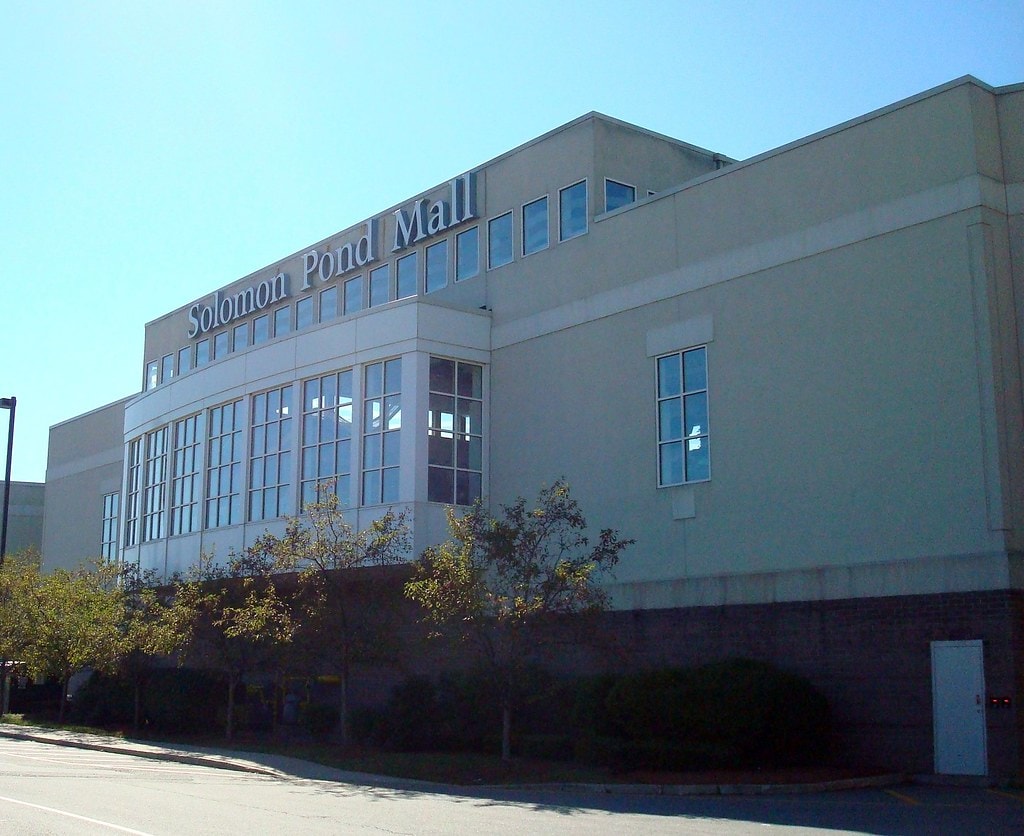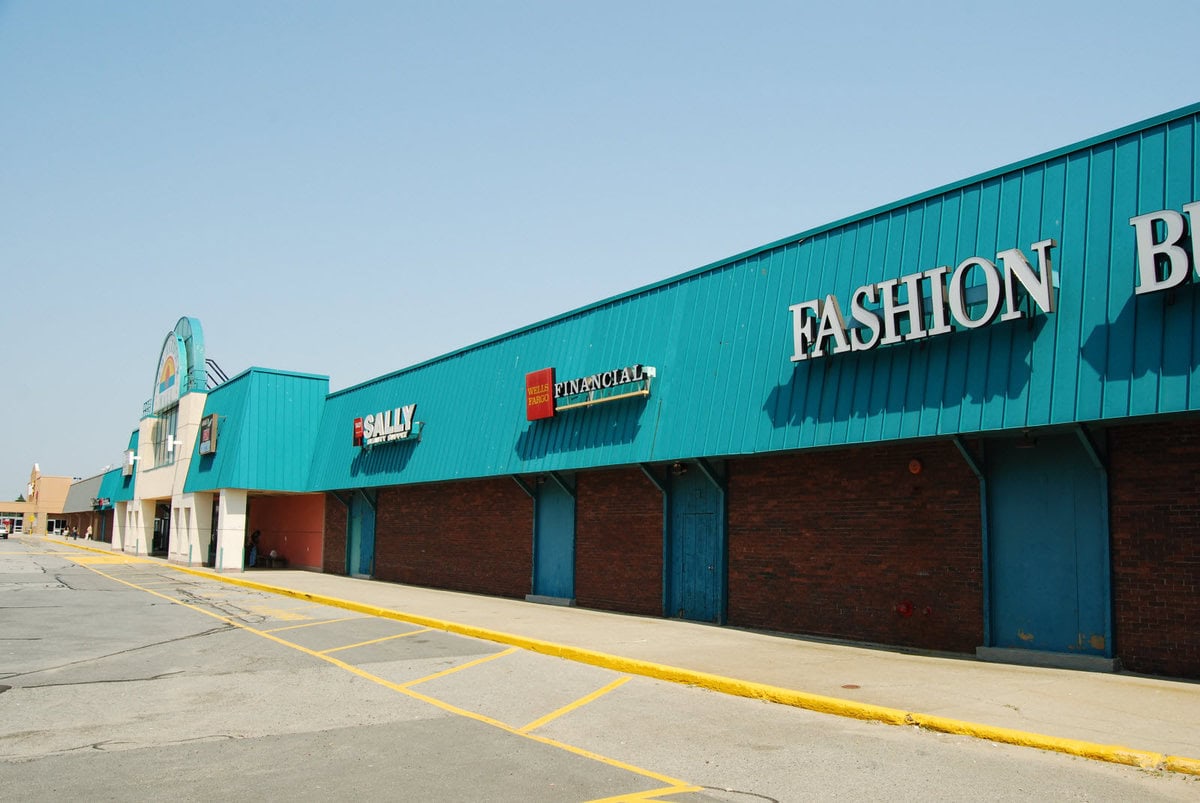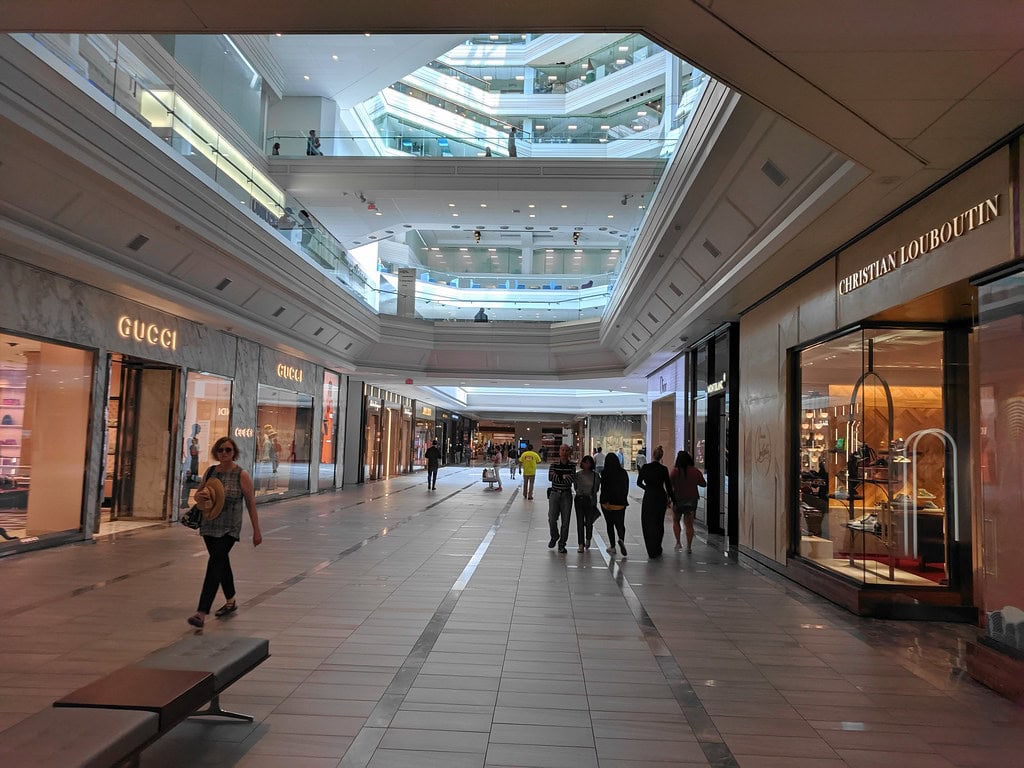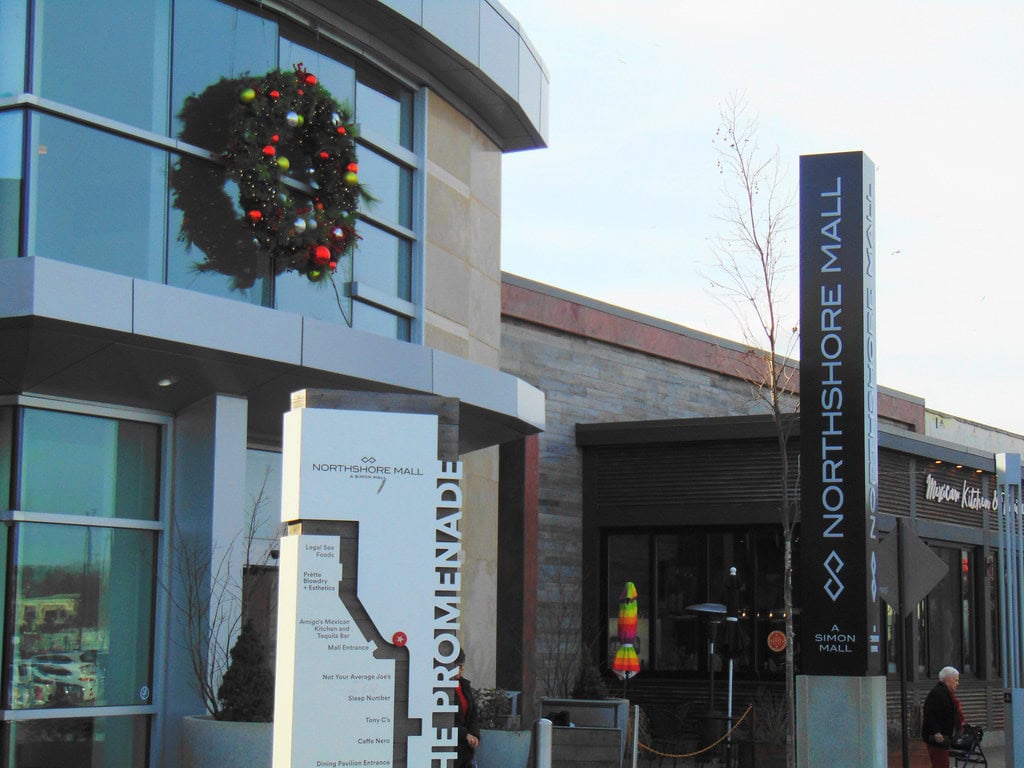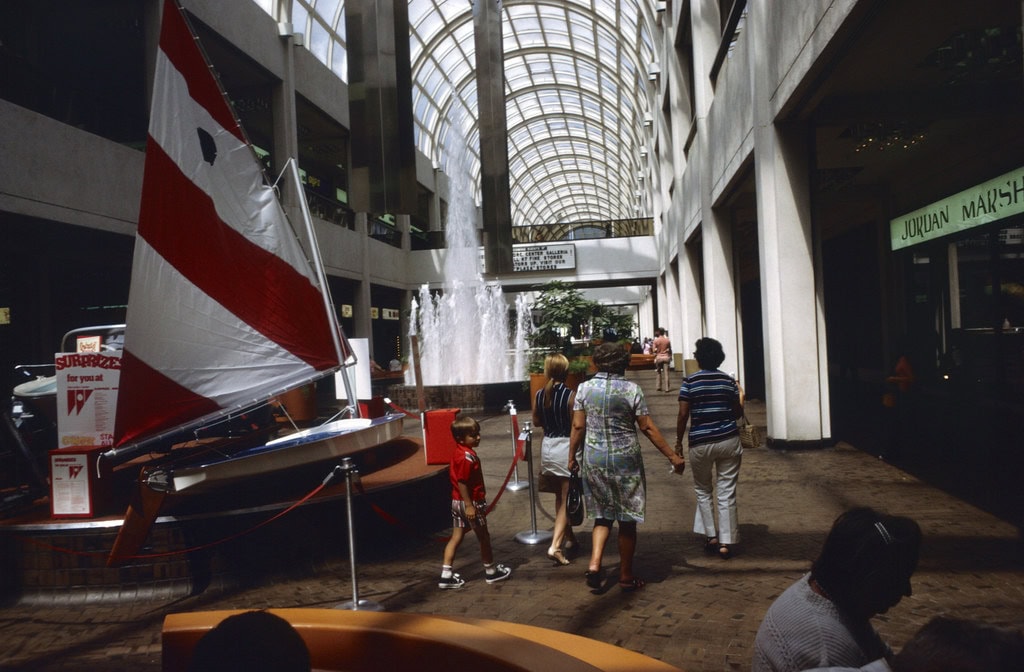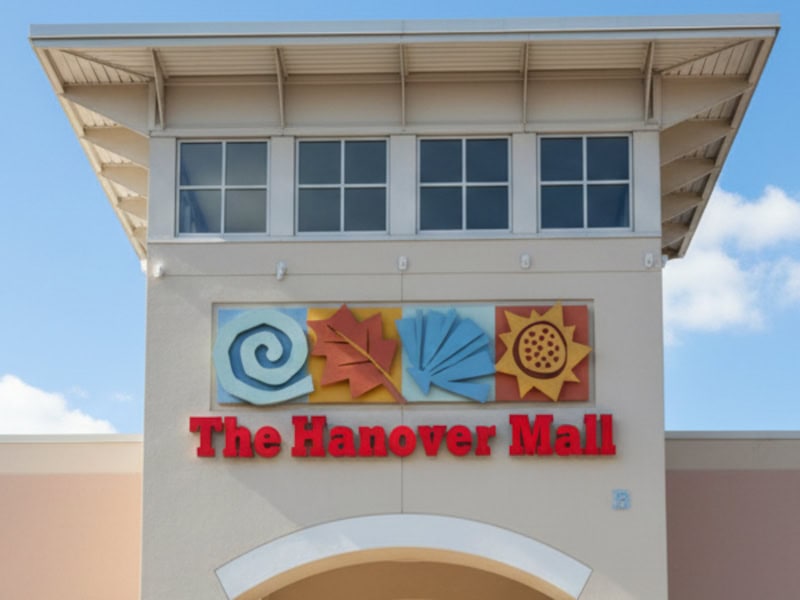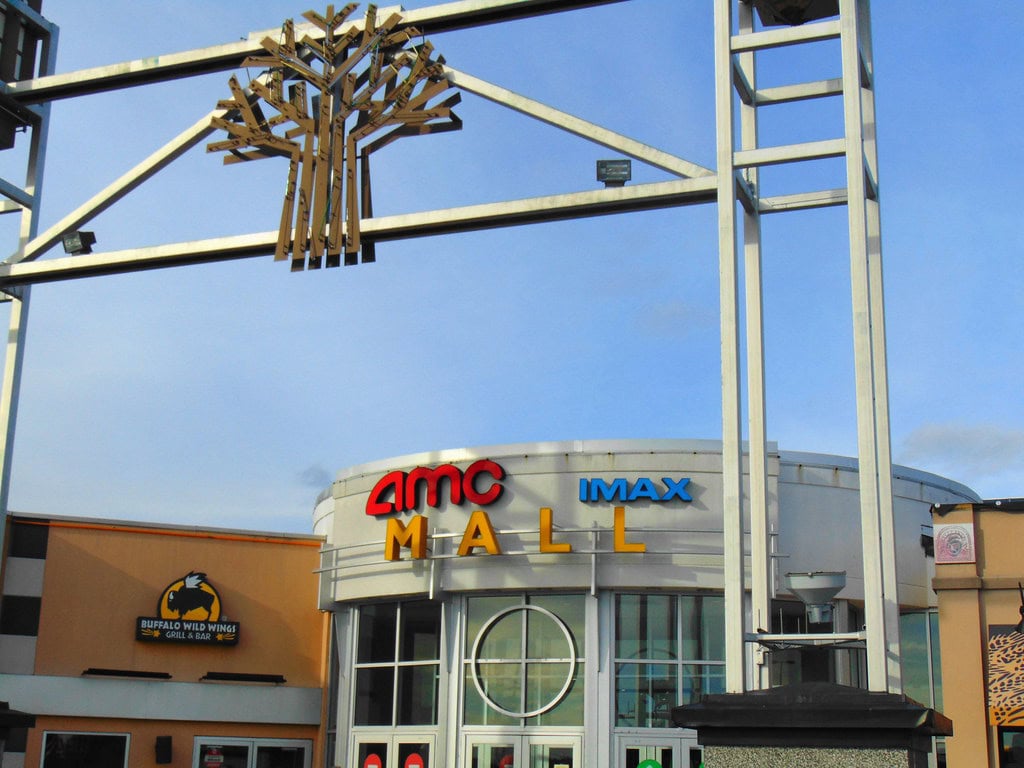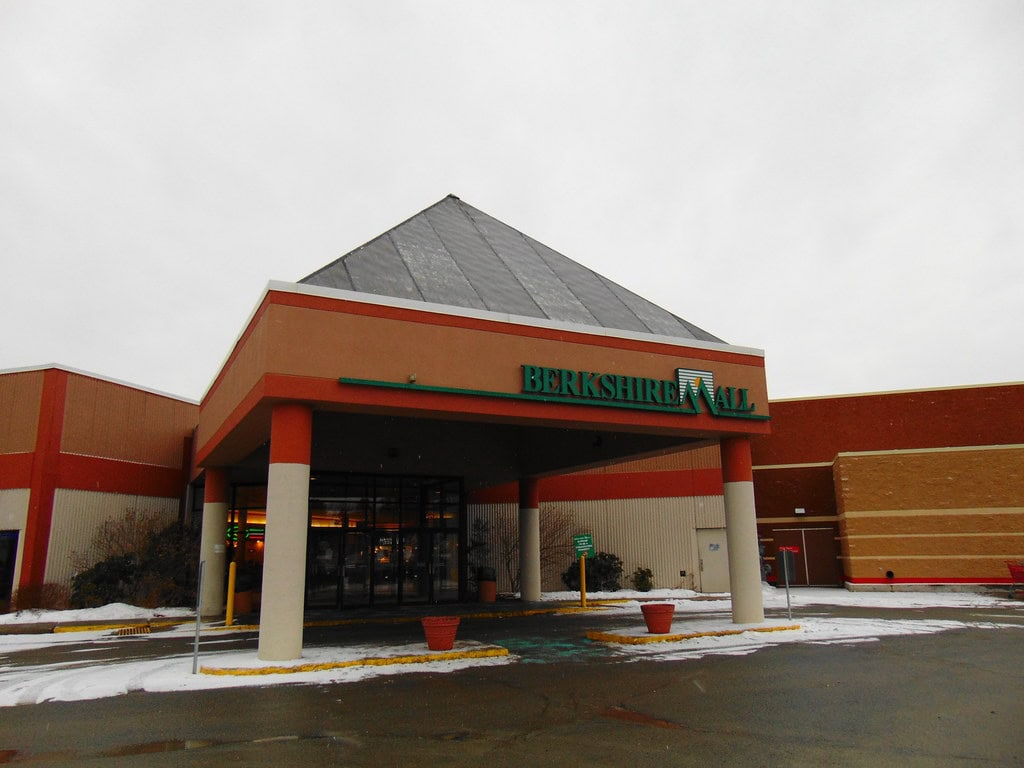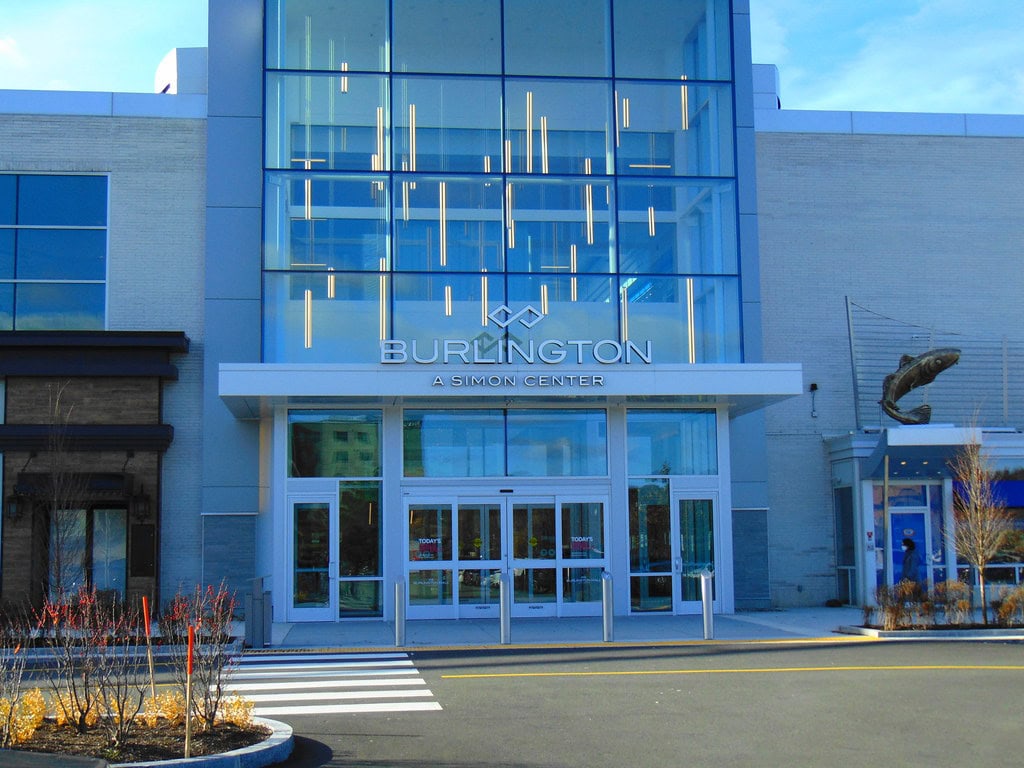Origins and Early Development
Dartmouth Mall, originally called North Dartmouth Mall, has a history rooted in the late 1960s.
Built between 1969 and 1971, the mall was developed by Arlen Realty. It replaced the 9-hole Paskamansett Links Golf Course, which had occupied the site.
The mall officially opened its doors in 1971, becoming the first large-scale retail facility along Route 6 in North Dartmouth, Massachusetts.
This location was part of a commercial development zone, which paved the way for retail growth in the area.
When the mall opened, it featured an impressive array of attractions. Shoppers could explore 72 stores, enjoy meals at nine restaurants, and catch a movie in a 3-screen cinema.
Major anchors included Zayre, Sears, and The Outlet Company department store.
Two smaller anchors, Cherry & Webb and Woolworth, rounded out the shopping experience.
The layout provided a mix of local favorites and national chains, making it a key destination for the community.
The mall's introduction brought a wave of development to the surrounding area. Route 6 quickly transformed into a bustling retail corridor.
With the mall as its centerpiece, additional plazas and businesses sprung up nearby, creating a dynamic shopping district.
For those seeking things to do in Dartmouth, Massachusetts, Dartmouth Mall offered both convenience and variety, cementing its role as a local hub.
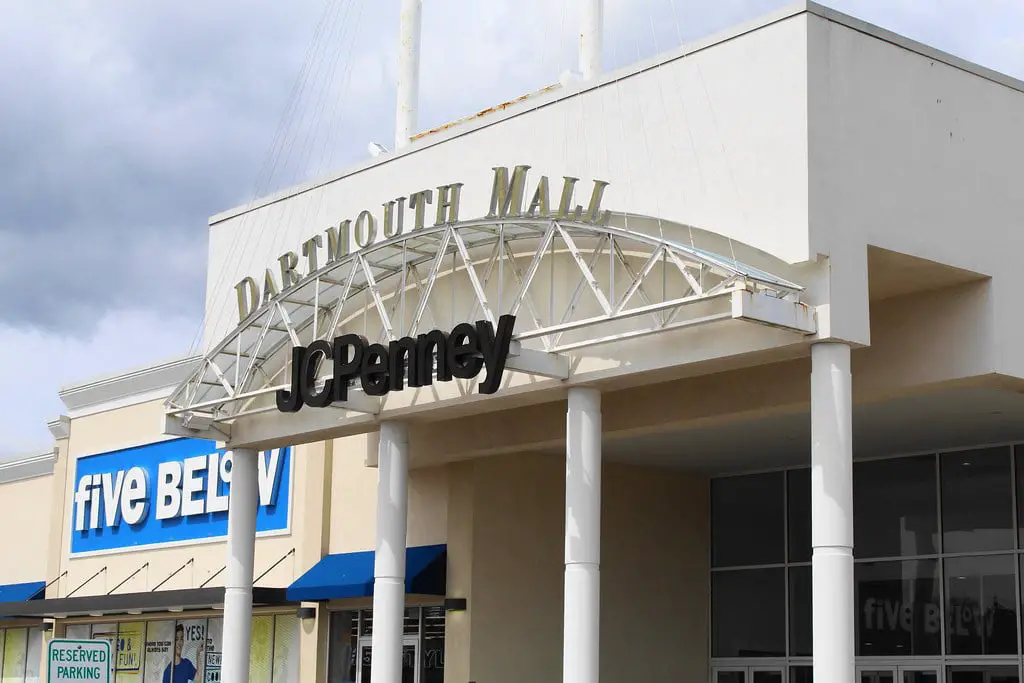
Evolution Through the Decades
Dartmouth Mall experienced many changes during the 1980s and 1990s as anchor stores shifted and retail trends evolved.
In 1980, The Outlet Company, one of the mall's original anchors, closed its doors.
By 1982, JCPenney stepped in to fill the space, becoming a long-standing part of the mall's tenant lineup.
Around the same time, Zayre, another original anchor, was rebranded under Ames after Zayre Corporation's acquisition in the late 1980s.
Ames operated for several years before closing, leaving the space vacant.
By the early 2000s, Dartmouth Mall began a major transformation. The mall underwent a full renovation, including new entrances, modern signage, and a complete interior refresh.
A new food court was added during this time, catering to changing consumer preferences for dining options.
One of the biggest updates was the cinema's expansion from its original three screens to a 12-screen theater operated by AMC, which enhanced the mall's entertainment offerings.
In 2004, the former Ames space was demolished to make room for a Filene's department store.
Two years later, Macy's acquired the Filene's chain and rebranded the store in 2006.
These updates ensured the mall remained a key retail destination while adapting to industry shifts.
Throughout these decades, the mall served as an anchor for the growing retail corridor along Route 6 and Faunce Corner Road.
Recent Developments
The 2010s and 2020s brought more changes to Dartmouth Mall, reflecting both the challenges and opportunities of modern retail.
In January 2019, Sears announced its closure, marking the end of its presence at the mall after decades as a cornerstone tenant.
The Sears space was vacated by the fall of the same year.
Burlington moved into part of the former Sears location, opening its doors in spring 2020 and adding a fresh retail option to the mix.
Another major addition came in 2021 when Aldi announced it would open a store in the complex.
The popular grocery chain began operations in the fourth quarter of the year, drawing new visitors and diversifying the mall's offerings.
Today, Dartmouth Mall hosts a mix of retail anchors, including Macy's, JCPenney, Burlington, AMC Theatres, and Aldi, alongside smaller specialty stores and restaurants.
Management by PREIT (Pennsylvania Real Estate Investment Trust) has helped maintain the mall's operations and secure new tenants.
Over the years, updates to the property - such as expanded entertainment options and modernized layouts - have helped the mall remain a destination for shopping and leisure.
Current Status of Dartmouth Mall (2023-2024)
In December 2023, Pennsylvania Real Estate Investment Trust (PREIT), the mall's owner, filed for Chapter 11 bankruptcy protection for the second time in four years.
This move aimed to restructure approximately $880 million in debt. PREIT assured stakeholders that mall operations would continue without interruption during this period.
By April 2024, PREIT successfully emerged from bankruptcy, having reduced its total debt by about $835 million.
The reorganization strengthened the company's financial position and transitioned it from a publicly held firm to a privately held entity.
Additionally, changes in management included the appointment of a new CEO.
In March 2024, the Dartmouth Planning Board approved a proposal to introduce a Chick-fil-A restaurant at the Dartmouth Mall.
The plan involves replacing the former Sears Auto Center with a Chick-fil-A featuring a drive-thru, indoor seating, and a patio area.
In May 2024, Fiesta Shows brought a carnival to Dartmouth Mall, offering rides, games, and food.
The event ran from May 2 to May 12, providing entertainment for families and community members.
These developments highlight Dartmouth Mall's dynamic nature. It adapts to industry challenges and seeks to enhance its offerings for the local community.
Future Prospects and Challenges
As the retail industry continues to evolve, Dartmouth Mall faces both opportunities and challenges.
The shift toward e-commerce has reshaped consumer habits, forcing traditional malls to rethink their strategies.
Like many others, Dartmouth Mall has embraced diversification by incorporating non-retail tenants such as entertainment venues and dining options.
These changes aim to attract a broader audience and provide more reasons for people to visit.
PREIT management has also focused on leasing efforts to keep spaces filled and appealing.
New tenants like Aldi and Burlington reflect this strategy, showing an ability to adapt to changing market demands.
At the same time, the mall must compete with online shopping and newer retail developments, which can impact foot traffic.
Sustainability initiatives could influence the mall's future plans.
Eco-friendly upgrades, such as energy-efficient lighting and waste reduction programs, may help the property align with consumer values and reduce operating costs.
These steps, paired with ongoing tenant diversification, will shape how Dartmouth Mall navigates the evolving retail landscape.

